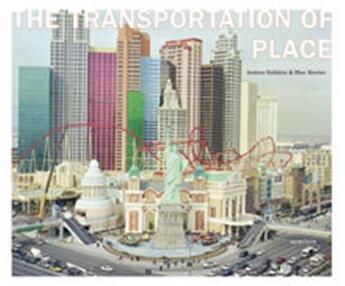-
Date de parution : 20/03/2006
-
Editeur :
Aperture
-
EAN : 9781597110105
-
Série :
(-)
-
Support :
Papier
Résumé:
Andrea Robbins and Max Becher draw on a rich visual vocabulary gleaned as much from travel brochures, postcards, and National Geographic as from the photography of Walker Evans, Edward Curtis, and Stephen Shore. In doing so, Robbins and Becher produce work that functions as surreal nonfiction,... Voir plus
Andrea Robbins and Max Becher draw on a rich visual vocabulary gleaned as much from travel brochures, postcards, and National Geographic as from the photography of Walker Evans, Edward Curtis, and Stephen Shore. In doing so, Robbins and Becher produce work that functions as surreal nonfiction, using documentary images to examine contradictions of place and cultural identity. In the words of the artists, "The primary focus of our work is what we call the transportation of place - situations in which one limited or isolated place strongly resembles another distant one. Everywhere, not only in the new world, such situations are accumulating and accepted as genuine locales. Traditional notions of place, in which culture and geographic location neatly coincide, are being challenged by legacies of slavery, colonialism, holocaust, immigration, tourism, and mass-communication. Whether the subject is Germany in Africa, Germans dressing as Native Americans, American towns dressed as Germany, New York in Las Vegas, New York in Cuba, or Cuba in exile, our interest tends to be a place out of place with its various causes and consequences." The work posits vital questions for a globalized world: What are the larger implications of "ideological passing," when one culture assumes the skin of another? And what role can photography play as a document in context where cultural signification is entirely fluid? Curator and author Maurice Berger examines the work of Robbins and Becher against the background of race and identity, but also of Surrealism. Lucy Lippard discusses the development of the husband-and-wife team's work together, as well as looking specifically at the ideas of location, landscape, and manufactured place.
Donner votre avis














